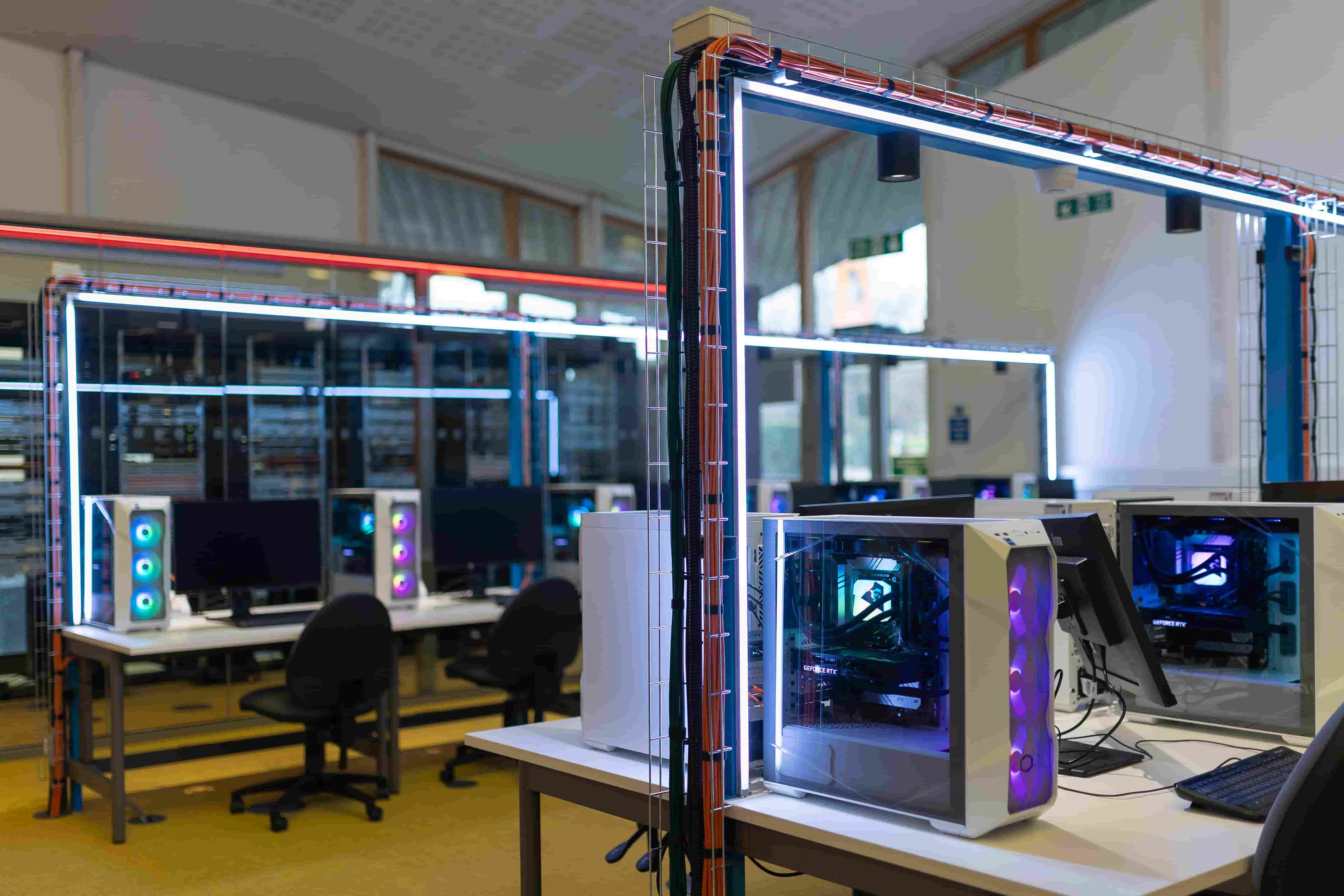Optional placement:
Industrial Placement (120 credits)
Spend 48 weeks on placement working within the industry. Refine, plan, schedule, and produce an individual project based on your experience. Critically reflect on the skills and experience gained as part of your placement.
Final year (national level 6):
Project (40 credits)
Articulate an in-depth knowledge and critical understanding of your chosen research topic. Develop your professional skills, such as problem-solving, creativity, critical thinking, self-reflection, and time management. Collect, organise, and present your body of work, including a critical evaluation and correct citation and reference of appropriate research sources.
Cyber Threat Landscape (20 credits)
Gain a holistic understanding of the cybersecurity threat landscape, and of cyber risk assessment and management. Research, investigate and analyse the cybersecurity incidents, threats, and vulnerabilities that make up the cyber threat landscape, both in terms of recent emergent issues and those issues which recur over time. Work with case studies to investigate the security strategies employed by a company, and then recommend applicable policies and frameworks.
Web Application Security (20 credits)
Understand the most prevalent web application vulnerabilities, their causes, and their consequences. Study the methodologies for testing for evidence, vulnerabilities within applications, and protection against these. Utilise the techniques of ethical hacking to discover and exploit vulnerabilities in web applications.
Digital Forensic Investigations (20 credits)
Discuss and investigate advanced applications in computer forensics such as employability, payment card industry, e-disclosure, social media, internet crime, malware & spyware, network forensics, and mobile phone forensics. Build your knowledge base to include essential areas such as the process of identifying, preserving, analysing, and presenting digital evidence. Consider the ethical and professional dilemmas facing computer forensic practitioners and cybersecurity investigations.
Penetration Testing and Ethical Hacking (20 credits)
Evaluate the technical, legal, and business issues involved in developing, implementing, and testing secure systems, considering the potential security threats. Critically analyse the trade-offs of balancing key security properties: confidentiality, integrity, and availability. Examine the specific threats to networks, the architecture for secure networks (for example OSI security architecture), and the development and design of defense mechanisms and countermeasures.
